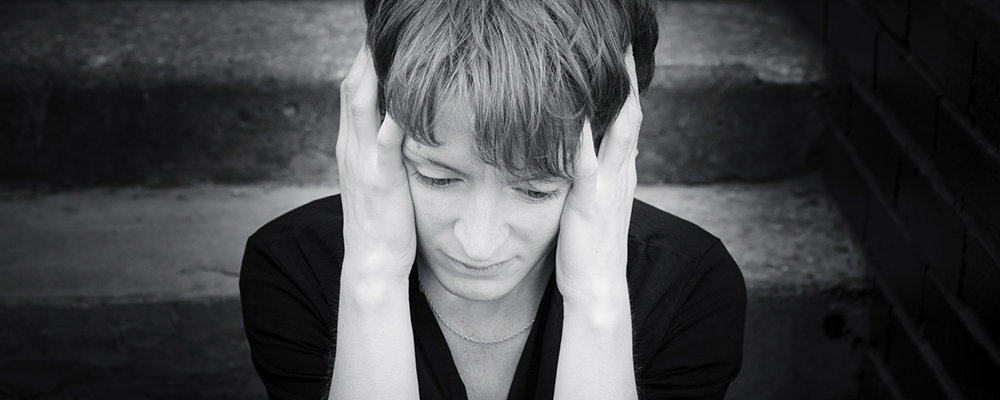1. What is panic disorder?
The sense of panic is known to everyone and many of us experience moments of panic, for example when we realize that our wallet has been stolen, when someone follows us at night, or when we do not know an answer on an exam. In these situations feeling panic is normal and the experience may last for a short while. However, people who have panic attacks, experience numerous moments of panic, that may appear to come out of the blue and that are more intense than the typical panic described above. Feelings can be strong and extremely frightening and may trigger a thought that something dreadful is going to happen. In panic disorder, people experience sudden and repeated attacks of fear for prolonged periods of time. Panic attacks can be characterized by a fear of losing control or pending disaster even when the circumstances suggest that there is no real danger. Some panic attacks might also be brought on by the fear of having another panic attack.
2. Causes, signs and symptoms of panic attacks
There are many things that play an important role in triggering panic attacks and developing panic disorder, including:
- Panic attacks can be heritable by our parents and this genetic predisposition sets the stage for panic attacks to occur.
- Major life transitions
- Severe stress
- Physical conditions
- Medical conditions
Symptoms of panic attacks include intense fear that peaks within 10 minutes, which can be accompanied by physical reactions such as; sweating, trembling, nausea, chest pain, difficulties breathing, dizziness, hot flashes and feelings of choking. Other symptoms of panic attacks are depersonalization (fear of being outside one’s body) and derealization (a feeling of the world not being real), or fear of losing control, going crazy or a fear that one will die. They may also feel frightened about what might happen next, or when the next panic attack might occur. Other common fears include feeling out of control during a panic attack. It is common that people tend to avoid places or situations that might be associated to have triggered panic attacks in the past, thus potentially resulting in withdrawal and isolation from society.
3. Panic disorder diagnosis
As mentioned above, panic attacks happen ‘out of the blue’ and can occur anywhere and anytime. Most panic attacks tend to peak within 10 minutes of onset, but some symptoms could last longer. Regular panic attacks can result in people becoming severely disabled by their condition and it is recommend that people seek treatment before their daily tasks are interrupted and places are avoided (e.g. supermarkets, driving, etc). In order that someone can be diagnosed with panic disorder, the panic attacks and symptoms will need to last and be persistent for at least 1 month. When discussing panic, it is important to distinguish panic disorder from panic attacks. Many of us have experienced at least one panic attack during our lifetime, but unless the symptoms of panic have re-occurred regularly for a prolonged period of time we will not fit the criteria for panic disorder.
4. Panic disorder treatment
Panic disorder is generally treated with psychotherapy, medication or both. In some cases self-help books are helpful for teaching different ways to cope with panic attacks, with some books also providing informative chapters on relaxation techniques and healthy lifestyle changes.
According to the National Institute for Health Care Excellence (NICE) the recommended psychotherapy for panic disorder is Cognitive Behavioural Therapy (CBT). This is a type of therapy that focuses on the connection between thoughts, emotions and behaviour and teaches the person new ways of thinking and behaving that may help to reduce and manage panic attacks. CBT focuses on the irrational thinking that triggers panic attacks and the following behaviors which maintain it. Over time irrational thoughts are changed to so that people can develop a more balanced view of their fears, and their behavior is altered as a consequence. Panic disorder can also be treated through the use of medication and your GP will be able to provide you with guidance on what medication to take. At present two types of medications are commonly used to treat Panic disorder – antidepressants and anti-anxiety medications. Some of these medications start working immediately whilst others take several weeks to start working. Common to all medication is that it may cause side effects and some medication should not be taken for prolonged periods of time.
How we can help you with panic attacks
If you feel you would gain from panic attack counselling, we can help you at one of our London locations. Our team of expert panic disorder counselling psychologists will be able work you through your fears and you’ll be able to enjoy total freedom over panic and start living again. Initially, recognising you have a problem with panic attacks is the first step, the second step is getting help for panic disorder leading to a much more positive life. The benefits of counselling for panic attacks are amazing:
-
- Tackle complications that develop from panic disorder such as agoraphobia, insomnia, stutters and shaking
- Decrease negative thinking patterns and behaviours
- See your fears in a more realistic light
- Teach you new coping skills
- Can help ease stress
- Greater degree of self-awareness
- Can give you a new perspective on problems
- Improves self-esteem
- Learn ways to talk to other people about your condition
- Life feels more enjoyable and fun!
Where to find us in London for panic disorder counselling
Liverpool Street, London
Longcroft House
2/8 Victoria Avenue
Liverpool Street
London
EC2M 4NS
Stanmore, London
The Highway
Stanmore
HA7
Harley Street, London
1 Harley Street
London
W1G 9QD
Overcoming fear and dealing with panic attacks

What causes panic attacks?
Most people will at some point in their life have experienced fear and many will describe this emotion as uncomfortable and unsettling. Dealing with the stressors of life can sometimes present a challenge and even trigger fear. Sometimes this fear can grow and cause further anxiety and...Read More »










